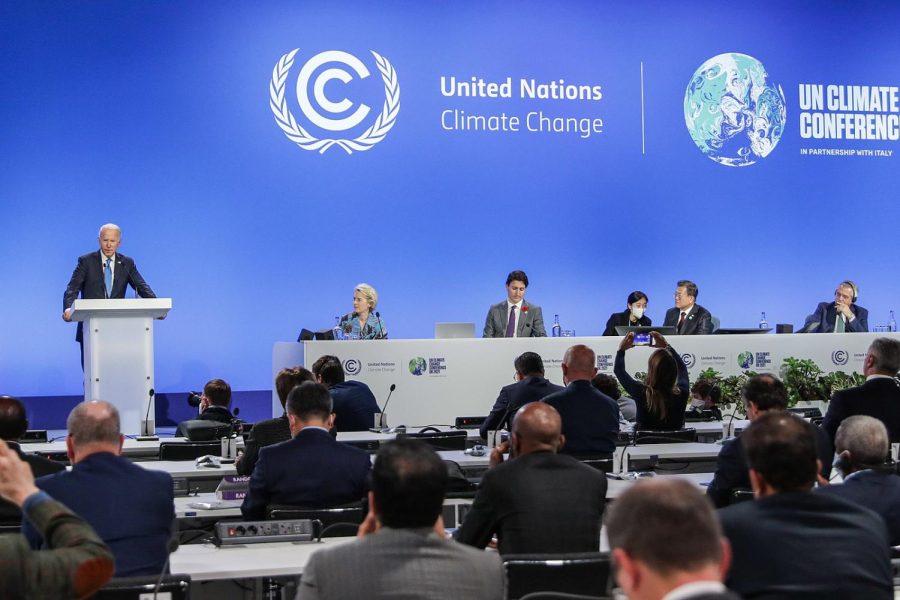Biden Administration Has Achieved Sweeping Climate Victories
The Biden administration has delivered on many of its ambitious environmental initiatives. Photo: Casa Rosada via Wikimedia Commons.
Despite some unfulfilled goals, the Biden administration has overall instituted effective climate policies. Its lofty environmental goals allowed for progress toward the goal of significantly reducing greenhouse gas emissions.
Early in his term, President Biden promised to achieve eventual net-zero emissions, end deforestation by the 2030s and reach carbon neutrality by 2050. Unfortunately, after the failure of his Build Back Better environmental initiative, the full realization of such ambitious goals seems unlikely. Additionally, Biden recently approved the Willow Project, a massive plan to drill for oil in Alaska, which, according to the administration’s own analysis “could spew 287 million metric tons of carbon pollution into the atmosphere over its expected lifespan, which is roughly the same as 76 coal plants in a single year.” Additionally, Biden had initially pledged $45 billion to replace every lead pipe in the nation, however the program ultimately only received $15 billion through his infrastructure bill. While the actual budget fell short of his original goal, the sum is still far more than previous administrations’ budgets for similar initiatives.
Furthermore, according to Senate Democrats, Biden’s Inflation Reduction Act approved $369 billion in funding for “clean energy and electric vehicle tax breaks, domestic manufacturing of batteries and solar panels, and pollution reduction.” The act’s budget was the largest in history for environmental action spending, thus exemplifying the Biden administration’s dedication to sweeping climate legislation. Even if the administration’s remaining climate bills fail to pass through Congress, greenhouse gas emissions would still fall 17–25% by 2030, which is less than Biden’s goal but still a major achievement in climate policy.
The administration’s focus on climate policy has been extensive and well-structured; by July of last year, the Biden administration had already implemented 54 new environmental policies and proposed 43 more. On his first day in office, Biden formed a National Climate Task Force and the White House Office of Domestic Climate Policy, and he rejoined the Paris Climate Agreement, reflecting how climate legislation has defined his administration. According to Vox, at the 27th Conference of the Parties of the UNFCCC, Biden announced “new funding initiatives and partnerships, including $100 million for global adaptation to climate change” and “$250 million for clean energy investment support” in foreign countries.
Biden has undoubtedly instituted effective climate policies despite legislative constraints. Although imperfectly, his administration has secured major victories in the global initiative against climate change.














































